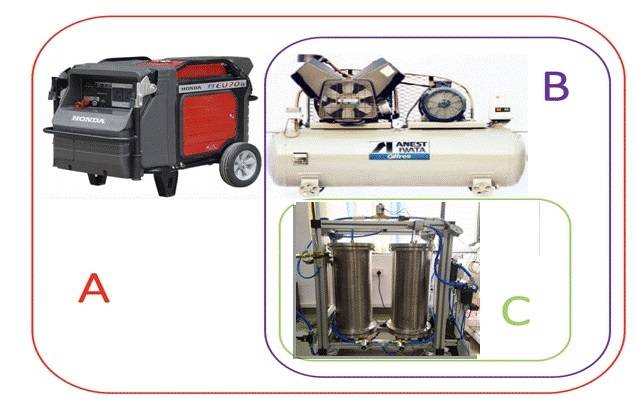
OxyHani is based on the principles of Pressure Swing Adsorption (PSA) technology….reports Asian Lite News
The Union Ministry of Science and Technology said on Thursday that researchers have designed a robust, mobile group oxygen concentrator — ‘OxyHani — that can be used in rural settings and also be rapidly deployed in any location during emergency situations.
OxyJani is based on the principles of Pressure Swing Adsorption (PSA) technology. The team replaced lithium zeolites (LiX), which is usually used in oxygen concentrators, with sodium zeolites, which does not generate toxic solid waste and can be manufactured in India.
A team from the Jawaharlal Nehru Centre for Advanced Scientific Research, an autonomous institute under the Department of Science & Technology, developed the new solution named OxyJani to address the novel challenges.
It was developed during the second wave of the Covid-19 pandemic, addressing the several novel design challenges posed for the sourcing of materials and to meet the needs in hospitals of different capacities.
The second Covid wave led to an acute shortage of medical oxygen. While the crisis in the bigger cities was more about rapid response by overcoming supply chain limitations, in smaller cities and villages, the crisis exposed the chronic lack of medical oxygen infrastructure in the country.
Overcoming the crisis required two types of solutions — 5 to 10 lpm personalised O2 concentrators for home uses and 500 lpm PSA plants for large hospitals.

While the 500 Ipm plants for hospitals were robust, they lacked the portability required for deployment in the resource-poor settings, while personal concentrators were too fragile to be used on a sustained basis in a hospital setting. This created a need for a robust technology with necessary portability.
Although the science behind it is well understood, developing an engineering solution that can work with sodium in a portable device and fill this specific market gap when there are severe sourcing problems posed engineering challenges.
Obstacles had to be overcome at each stage of the cycle, from working with the available zeolites to effective ways of dehumidifying and designing the right adsorption-pressure cycle.
The concentrator is modular and capable of delivering a range of solutions, conversion of medical air to medical oxygen, and is an entirely off-grid solution including all modules that can facilitate deployment in rural areas.
Moreover, the waste from the 13X zeolite plant can be potentially a good agricultural input material.
This new class of technology called ‘group concentrators’ has the robustness of large PSA plants, with portability similar to personal concentrators, and is affordable too. The device is in the range of 30-40 lpm, which is also potentially useful for ICU uses.
ALSO READ: Covid-19 will change the world’s geography


